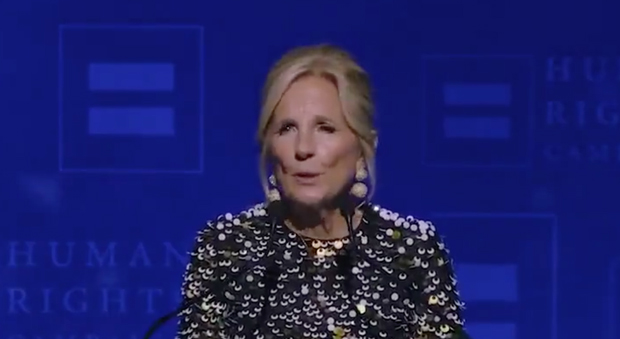Children raised by conservative parents are less likely to suffer from mental illness compared to those raised by liberal parents, according to a new study.
The study, conducted by the Brookings Institution, Gallup, and the Institute for Family Studies, determined significant differences in the relationship conservative parents have with their children compared to liberal family households.
The study noted that parenting style determines the relationships parents have with their kids, with the key driver being an “authoritative” method which combines “affection and attentiveness to children’s needs.”
The brief’s author, Jonathan Rothwell, said children with liberal parents are deemed to be at high risk for mental health issues.
“As it happens, being raised by liberal parents is a much larger risk factor for mental health problems in adolescence than being raised in a low-income household with parents who did not attend college,” Rothwell wrote in his IFS blog post.
“Children of conservative parents score significantly better on mental health using either a comprehensive measure of mental health based on several items, or just asking either parent or adolescents to summarize their mental health on a 1-5 scale. The gap is large,” Rothwell continued.
Rothwell surveyed 6,643 people to determine how a positive relationship between parents and their children impacts youth mental health.
Just 55 percent of the adolescents of liberal parents said they had good or excellent mental health. In contrast, 77 percent of those with conservative parents reported good or excellent mental health.
In Rothwell’s findings, he noted that parents’ political ideology “is one of the strongest predictors” of a child’s mental health.
“Conservative and very conservative parents are the most likely to adopt the parenting practices associated with adolescent mental health,” he wrote, adding “They are the most likely to effectively discipline their children while also displaying affection and responding to their needs.”
Rothwell noted that liberal parents “score the lowest” because they are least likely to “have success with disciplining their children.”
“By contrast, conservative parents enjoy higher quality relationships with their children, characterized by fewer arguments, more warmth, and a stronger bond, according to both parent and child reporting,” he continued.
Researchers also discovered that adolescents raised by very conservative parents are 16 to 17 percentage points more likely to enjoy good or excellent mental health compared to their peers with very liberal parents.
“Only 55 percent of adolescents of liberal parents reported good or excellent mental health compared to 77 percent of those with conservative or very conservative parents,” the study found.
The study also found that conservative parents are eight percentage points more likely to have a good relationship with their children than liberal parents, with a large gap of 14 percentage points between both parenting styles.
“Interestingly, however, ‘very liberal parents score much higher than liberal parents, only slightly behind conservatives, with no significant difference,” the study read. “Still, the relationship quality gap favors conservative over liberal parents whether it is self-reported or reported by the child.”
The study also noted that disciplinary action on children “shows the largest political divide.”
It read:
“For example, 80 percent of very conservative parents disagreed with the statement: ‘my child often gets their way when we have a conflict,’ compared to 66 percent of conservative parents, 64 percent of moderate parents, 53 percent of liberal parents, and 55 percent of very liberal parents.”
The study added that “very conservative” parents are likelier to report affection to their children daily.
The study comes amid a nationwide mental youth crisis among children, which became more pronounced throughout the COVID-19 pandemic.
The suicide rate of youths in the U.S. has tripled in two decades, according to a report from the N.C. Child Fatality Task Force. The figures mark an emerging parental crisis across the nation, which appears to be driven by liberal parenting.
“Mental health problems in early adolescence predict mental health problems in adulthood, with wide-ranging implications for individuals, families, communities, and society,” Rothwell writes.
“One’s capacity for developing and maintaining relationships and participating productively and competently in social affairs’ is largely dependent on that individual’s mental state during adolescence.”
The report also found that other factors like parental education, household income, and race were primarily unrelated to parenting quality and the mental health of children, the Carolina Journal noted.
The study collected data from 2,995 parents of adolescents between June and July of 2023, which also included measures of adolescent mental health from several factors, including political views, parenting practices, social media use, attitudes toward marriage, and parental demographics.
The problem with liberalism in parenthood appears to be a product of the ‘woke’ mindset disseminated through years of propaganda from the establishment media. Wokeism is not only within the family unit but also in schools, where conservative parenting is often ostracized.











